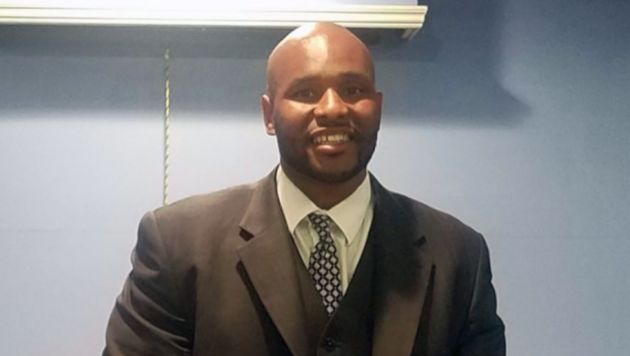Jersey City Ward F Councilman Frank “Educational” Gilmore reflected on being one of the first formerly incarcerated individuals to hold elected office, policing, helping troubled youth, and more while discussing his first year in office.

By Daniel Ulloa/Hudson County View
“In some states, as soon as you get arrested, you lose your [voting] privileges entirely,” he said in a phone interview.
Gilmore noted that Gov. Phil Murphy (D) signed legislation in late 2019 that allowed formerly incarcerated individuals to vote, which also allows them to run for office.
“I don’t see that anywhere. I don’t see it anywhere accomplished across the country. I ran as an independent, … with not much money, not part of the political establishment. It’s a huge accomplishment,” he reflected.
Gilmore was 19 when jailed for drug offenses. He was given a 10-year sentence that came with a mandatory five years.
He served 80 months, or about six-and-a-half years. He said while incarcerated, he took part in every enrichment program available, including college courses.
After his release, Gilmore obtained a degree from Rutgers University and opened a community center at 135 Monticello Ave.
Having been incarcerated, “gives me an insight into the other side,” the councilman stated, also pointing out that in led him to the habit of including many people in his decision making processes.
“Despite what we’ve been through, we can still overcome and be productive in society and contribute. When you think of America … you think of the land of second chances. Either we’re going to be a forgiving society, or we’re not,” he asserted.
“Formerly incarcerated individuals have this stigma associated with them. They’re really human beings. Ward F is riddled with crime, it’s no secret. To address violence, you have to understand violence.”
Gilmore said that while people are quick to push for issuing summonses or arresting people as the answer, he said that is rarely effective in urban neighborhoods, an area where he feels having police walk the beat – as opposed to standing posts – pays big dividends.
“We demonize kids early on … and so much… they take on this demonic mentality. Their first encounter [with police] shouldn’t be getting arrested or pulled over Let’s find out why the youth are out here.”
He noted while many are fundamentally problematic, far more are in a gray area. Gilmore noted many start disadvantaged since they are minorities being raised in a poor neighborhood.
“Crime is crime, but there are degrees. The War on Drugs was specifically targeted to Black and Brown communities. Drugs were poured into Black and Brown communities,” Gilmore added, noting that it is worse when the father of the household isn’t around.
“A lot of us don’t come from wealth, a lot of us don’t come from stability.”
Gilmore explained he held a community meeting and invited young men who loiter on corners. He said they found out they don’t like to be home because of the things they see at home, such as their mother using drugs, a lack of food, and a lack of heat.
Gilmore noted it’s a problem for young men if their parents move into an area occupied by gang members, reiterating that others have a lot of familial drama.
He said many have psychological issues that have not been addressed. Gilmore explained some do not feel wanted by their families. In addition, they are exposed to exploitation and feel extreme pressure due to social media, which leads to poor decisions.
“If you don’t come from that … you don’t understand it,” the councilman asserted.
Gilmore said he is just starting to understand the importance of mental health himself.
“I was just taught to deal with it … I know people who lost their parents don’t see no therapist. It’s extremely important,” he said.
Gilmore also said he plans to introduce an ordinance to help individuals traumatized access mental health services.
“That’s a huge thing we don’t talk about in our community. I’ve witnessed several family members die, several friends die; that’s not normal. There are some kids who lost a friend every year since they were 12 or 13 years old and haven’t seen a professional.”
Furthermore, he believes mental health professionals can assist in situations where police who are not equipped to address mental health were called, as well as calling to expand the scope of the recreation department – which he used to work for.